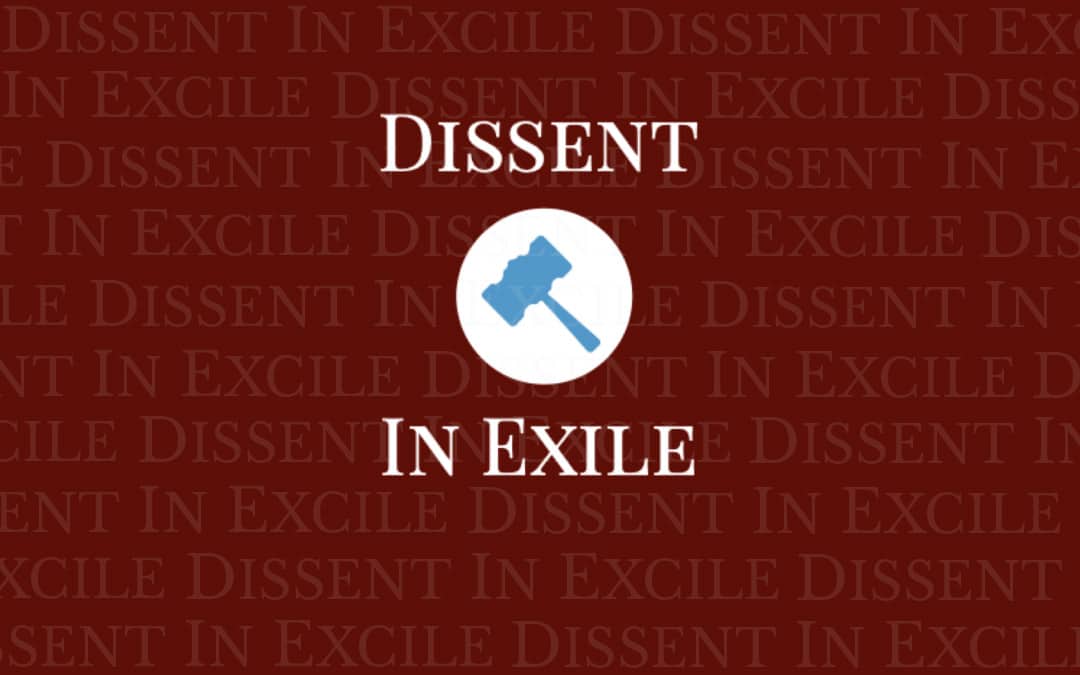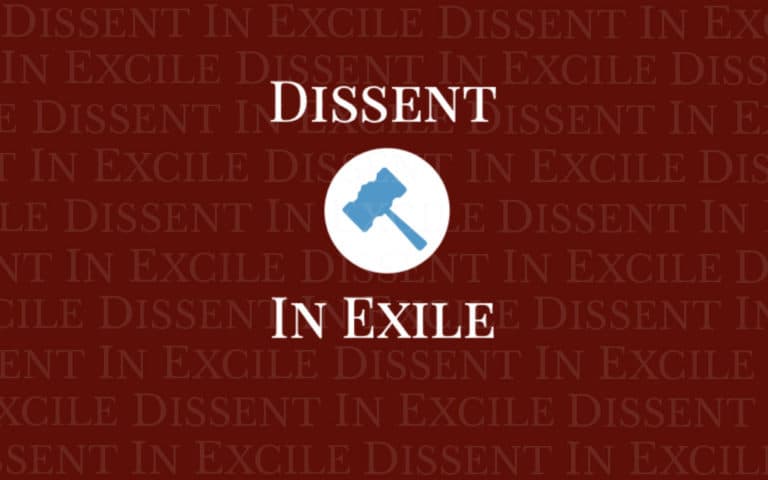
Sharon Block is a Professor of Practice and the Executive Director of the Center for Labor and a Just Economy at Harvard Law School.
In the new Board’s first decision of the post-McFerran era, United Parcel Service, Inc., 369 NLRB No. 1 (2019), the Board’s three Republican members overturn yet another Obama Board decision. This time, the Republican-only Board has taken on arbitral deferral standards, reversing the Board’s 2014 decision in Babcock & Wilcox Construction Co., 261 NLRB 1127, and returning to the standards established in Spielberg Mfg. Co., 112 NLRB 1080 (1955) and Olin Corp., 268 NLRB 573 (1984). The decision represents another example of the Trump Board’s lack of concern for workers’ statutory rights and its devaluing of the government’s role as the protector of such rights.
At issue in UPS is when the Board should defer to an arbitration decision in disciplinary and discharge cases that raise questions about whether the actions taken against the employee violated the NLRA. These cases involve the following fact pattern: A worker gets discharged or disciplined. The union files a grievance under the collective bargaining agreement alleging that the discharge or discipline violates the just cause provision of the contract. The arbitrator finds the discharge or discipline was justified under the contract. The union or worker then files a charge with the Board alleging that the discharge or discipline was unlawful under the NLRA because it was motivated by anti-union animus.
The Board undisputedly has authority to decide these cases, but has long struggled with when it should choose to defer to arbitrators’ decisions. It has vacillated between which of two policies it should respect more: support for the parties’ contractual relationship or the sanctity of its role in protecting workers’ statutory rights. Prior to the Obama Board’s decision in Babcock, the Board leaned towards deferral by adhering to a standard that would block the door to Board proceedings unless something went very wrong in the arbitral process. Under the Spielberg and Olin cases, the Board would defer as long as: (1) the arbitration proceedings appeared to have been fair; (2) the parties had agreed to be bound by the arbitration agreement; and (3) the arbitrator’s decision was not “clearly repugnant” to the Act.
In Babcock, the Board set a new standard, designed to ensure that workers’ rights to be free from discriminatory discharge or discipline for their union or concerted activity were protected regardless of whether the issue was litigated in the context of an arbitration or before the Board. Under Babcock, the Board would defer to arbitral decisions only when: (1) the arbitrator was explicitly authorized to decide the unfair labor practice issue; (2) the arbitrator was presented with and considered the statutory issue, or was prevented from doing so by the party opposing deferral; and (3) Board law reasonably permitted the award. As the Board articulated in Babcock, the objective in setting the new standard was not to preclude arbitration and encourage Board litigation, but to ensure that the arbitration fully considered a worker’s statutory rights.
In UPS, the Board readopted the Olin/Spielberg standards and has put itself back in the position of blocking access to the Board even when arbitrators’ decisions are sort of or moderately repugnant to the Act. The Board’s embrace of processes that yield decisions that are in any way repugnant to workers’ statutory rights is wrong and cannot be justified by the reasons offered by the Board in UPS.
The Board claims that Babcock rested on two faulty assumptions, but it is the Board’s decision in UPS that rests on a fault line of mistakes. First, the Board asserts that Babcock represents the Obama Board’s general mistrust of arbitrators to decide statutory rights. Such an assertion ignores that there is nothing in Babcock that precludes arbitration of Section 7 rights. Instead, it just requires that such consideration actually happens. Under the standard readopted by the Board in UPS, it is entirely possible that an employee’s Section 7 rights will fall through the cracks, as long as the arbitrator at the end of the process issues a decision that isn’t “clearly repugnant” to the Act. There can be a lot of distance between thoughtful consideration of a statutory right and “clear repugnance;” in that distance, the future of a worker’s livelihood and an organizing campaign may suffer greatly. The UPS Board’s second assertion – that the Babcock Board improperly tried to retain its own primacy in adjudicating statutory rights – fails for the same reason its first one does. In practice, the exact same number of discharge and discipline cases could be arbitrated under the Babcock standard as under the Olin/Spielberg standards. Put another way, there is no case raising a statutory violation that could not be arbitrated under Babcock. The parties would just have to expressly decide that they wanted all of those cases to go to arbitration instead of the Board.
The UPS Board then identifies four additional criticisms of the Babcock decision, which all can be quickly dismissed:
- First, the Board asserts that Babcock interfered with freedom of contract by requiring language that expressly addresses statutory claims. Of course, nothing in Babcock compels any particular contract clause. Contrary to the UPS Board’s claim, it doesn’t seem like a radical new idea to be sure that a contract says expressly what it means, especially when statutory rights are at stake.
- Second, the Board claims that Babcock encouraged multiple litigation of discharge and discipline claims – once before the arbitrator and once before the Board. The Board offers no proof of this assertion, even though Babcock has been on the books for more than five years.
- Third, the Board asserts that Babcock erred in shifting the burden of proof to the party seeking deferral. While the Board concedes that deferral is an affirmative defense, it fails to explain why the party asserting an affirmative defense should not bear the burden of proving it. Instead, the majority tries to sidestep its break from jurisprudential norms by passing off production of an arbitral decision as sufficient to carry a party’s burden.
- Fourth, the Board criticizes Babcock for “eviscerating the Spielberg repugnancy standard.” That criticism strikes me as confusing because the Babcock Board majority was quite transparent that that was their intent. Maybe what the UPS Board meant to say is that it didn’t like the standard that Babcock imposed instead. But, an observation that the Board imposed a standard different than the standard it sought to replace is hardly sound legal reasoning.
Noticeably, the Board expends almost no effort explaining why the Olin/Spielberg standards are correct. The Board claims that Babcock effectuated a “drastic contraction in deferral practices,” but nowhere supports that claim. Because there is no dissent, the Board evades having to justify playing so fast and loose with workers’ statutory rights. When paired with the Trump Administration’s decision to switch sides in Epic Systems, supporting forced arbitration clauses, this decision demonstrates a worrying comfort by Trump appointees with the potential for workers’ statutory rights being overlooked by private adjudicators. This Administration again has interposed itself as an obstacle to workers having recourse to the government agencies or judges that Congress entrusted to adjudicate their statutory rights.







Daily News & Commentary
Start your day with our roundup of the latest labor developments. See all
March 4
The NLRB and Ex-Cell-O; top aides to Labor Secretary resign; attacks on the Federal Mediation and Conciliation Service
March 3
Texas dismantles contracting program for minorities; NextEra settles ERISA lawsuit; Chipotle beats an age discrimination suit.
March 2
Block lays off over 4,000 workers; H-1B fee data is revealed.
March 1
The NLRB officially rescinds the Biden-era standard for determining joint-employer status; the DOL proposes a rule that would rescind the Biden-era standard for determining independent contractor status; and Walmart pays $100 million for deceiving delivery drivers regarding wages and tips.
February 27
The Ninth Circuit allows Trump to dismantle certain government unions based on national security concerns; and the DOL set to focus enforcement on firms with “outsized market power.”
February 26
Workplace AI regulations proposed in Michigan; en banc D.C. Circuit hears oral argument in CFPB case; white police officers sue Philadelphia over DEI policy.